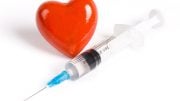
Research indicates that a fasting-mimicking diet can rejuvenate the immune system and reduce metabolic risk factors in humans, effectively making them biologically younger by following a specific five-day dietary plan that mimics fasting effects.
Research from USC demonstrates that periodic adherence to a diet that simulates fasting can lower insulin resistance, decrease liver fat, rejuvenate the immune system, and reduce biological aging in clinical trial patients.
Periodic adherence to a fasting-like diet can reduce signs of aging in the immune system, alongside decreasing insulin resistance and liver fat levels in humans, leading to a reduced biological age, according to a study led by the USC Leonard Davis School of Gerontology.
The study, which was recently published in the journal Nature Communications, adds to the body of evidence supporting the beneficial effects of the fasting-mimicking diet (FMD).
The FMD is a five-day diet high in unsaturated fats and low in overall calories, protein, and carbohydrates and is designed to mimic the effects of a water-only fast while still providing necessary nutrients and making it much easier for people to complete the fast. The diet was developed by the laboratory of USC Leonard Davis School Professor Valter Longo, the senior author of the new study.
“This is the first study to show that a food-based intervention that does not require chronic dietary or other lifestyle changes can make people biologically younger, based on both changes in risk factors for aging and disease and on a validated method developed by the Levine group to assess biological age,” Longo said.
Previous research led by Longo has indicated that brief, periodic FMD cycles are associated with a range of beneficial effects. They can:
In addition, the FMD cycles can lower the risk factors for cancer, diabetes, heart disease, and other age-related diseases in humans.
The Longo lab also had previously shown that one or two cycles of the FMD for five days a month increased the healthspan and lifespan of mice on either a normal or Western diet, but the effects of the FMD on aging and biological age, liver fat, and immune system aging in humans were unknown until now.
Lower disease risks & more youthful cells
The study analyzed the diet’s effects in two clinical trial populations, each with men and women between the ages of 18 and 70. Patients who were randomized to the fasting-mimicking diet underwent 3-4 monthly cycles, adhering to the FMD for 5 days, then ate a normal diet for 25 days.
The FMD is comprised of plant-based soups, energy bars, energy drinks, chip snacks, and tea portioned out for 5 days as well as a supplement providing high levels of minerals, vitamins, and essential fatty acids. Patients in the control groups were instructed to eat either a normal or Mediterranean-style diet.
An analysis of blood samples from trial participants showed that patients in the FMD group had lower diabetes risk factors, including less insulin resistance and lower HbA1c results. Magnetic resonance imaging also revealed a decrease in abdominal fat as well as fat within the liver, improvements associated with a reduced risk of metabolic syndrome. In addition, the FMD cycles appeared to increase the lymphoid-to-myeloid ratio – an indicator of a more youthful immune system.
Further statistical analysis of the results from both clinical studies showed that FMD participants had reduced their biological age – a measure of how well one’s cells and tissues are functioning, as opposed to chronological age – by 2.5 years on average.
“This study shows for the first time evidence for biological age reduction from two different clinical trials, accompanied by evidence of rejuvenation of metabolic and immune function,” Longo said.
The study, conducted by first authors Sebastian Brandhorst, USC Leonard Davis research associate professor, and Morgan E. Levine, founding principal investigator of Altos Labs and USC Leonard Davis PhD alumna, lends more support to the FMD’s potential as a short-term periodic, achievable dietary intervention that can help people lessen their disease risk and improve their health without extensive lifestyle changes, Longo said.
“Although many doctors are already recommending the FMD in the United States and Europe, these findings should encourage many more healthcare professionals to recommend FMD cycles to patients with higher than desired levels of disease risk factors as well as to the general population that may be interested in increased function and younger age,” Longo said.
Reference: “Fasting-mimicking diet causes hepatic and blood markers changes indicating reduced biological age and disease risk” by Sebastian Brandhorst, Morgan E. Levine, Min Wei, Mahshid Shelehchi, Todd E. Morgan, Krishna S. Nayak, Tanya Dorff, Kurt Hong, Eileen M. Crimmins, Pinchas Cohen and Valter D. Longo, 20 February 2024, Nature Communications.
DOI: 10.1038/s41467-024-45260-9
The study was funded by the National Institute on Aging.








A great article on a great study which is too-typically ignorantly invalidated in reality by failing to factor-in four too-common fatal flaws: 1) the research skewing John D. Rockefeller instigated medical conspiracy to ‘treat for profit’ rather than to ‘prevent and cure’ since the year 1900 (“Murder by Injection” Eustace Mullins, 1988), 2) medically unrecognized food allergies identified, studied and reported on by Dr. Arthur F. Coca by 1935, 3) medically unrecognized FDA approved food poisoning (namely added soy [late 1960s] and artificially cultured MSG [1980], others) and 4) related/resultant medical errors therefrom. Doesn’t anyone at USC read and share the email comments I send intended for all?
“I say to everyone among you not to think of himself more highly than he ought to think” Romans 12:3
Just saying.
Waiting for the “Never Mind.”
LOL. Previous research suggested . . . but newer studies show . . .